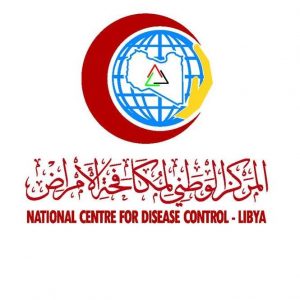By Sami Zaptia.

London, 7 August 2020:
Libya’s Coronavirus continues to spread at an alarming pace with social, political, and economic consequences. The Tripoli Libyan government extends the 10-day curfew, makes mask-wearing compulsory and introduces fines for infringers.
Yesterday, the country’s National Centre for Disease Control (NCDC) reported a record high 404 positive cases – up from the previous day’s 249. There were 8 new deaths. Of the 404 reported cases, 185 were new cases, 219 were as a result of social mixing and there were 12 recoveries. There were a total of 2,144 tests reported.
The numbers for the last 8 days are:
- 30 July: 3438 cases (+216 new infections), 73 deaths (+2)
- 31 July: 3621cases (+183), 74 deaths (+1)
- 1 August: 3691 cases (+80), 80 deaths (+6)
- 2 August: 3837 cases (+146), 83 deaths (+3)
- 3 August: 4063 cases (+236), 93 deaths (+ 10)
- 4 August: 4226 cases (+163), 96 deaths (+ 3)
- 5 August: 4475 cases, (+ 249), 99 deaths (+3)
- 6 August: 4879 cases (+ 404), 107 deaths (+8)
The main hotspots are Tripoli and Misrata. In the capital there were 184 new cases on 6 August – up from 55 the previous day.
In the whole of Libya, there are now a total of: 4,879 cases with 4,120 active cases, 652 recoveries and 107 deaths.
Misrata
In Misrata there were 55 new cases reported on 3 August, 80 on 4 August, 102 new cases on 5 August and 122 on 6 August. The mayor, Mustafa Kerwad, is among those reported to have tested positive for the virus. Meanwhile, the Central Committee for Municipal Council elections announced on 3 August that Misrata’s municipal elections had been put on hold because of the pandemic.
The same day, the Supreme Crisis Committee in Misrata, set up to deal with the pandemic, recommended the declaration of a state of emergency. It ordered the use of masks in public places, social distancing, a ban on all gatherings and restrictions on movement in and out of the city.
Hay Al-Andalus
Other locations are also seeing the number of cases increase. In western Tripoli, the mayor of Hay Andalus has said that the municipality is unable to deal with the spread of the virus. In Tobruk in eastern Libya, the head of the medical committee has said that the virus is out of control. The town is said to be faced with a severe shortage of personal protection equipment, including masks and gloves.
Continued curfew
To deal with the surge, the Tripoli government announced a 5-day, 24-hour lockdown for the Eid period, starting on 31 July. As of 5 August, the lockdown is from 6pm to 9am, but some municipalities have announced their own lockdown times.
Test kit shortage
The NCDC privately wrote to the Tripoli Health Ministry saying that the country was fast running out of test kits. However, the Tripoli Health Ministry imported a shipment of 10,000 test kits from Turkey on 5 August using its Air Ambulance plane, and announced further kits are due in the next few days. The number of tests has substantially increased in recent days.
Some coronavirus ramifications
As a result of the 24-hour lockdown, in Tripoli there was no bread for the five-day Eid period. Bakers, shops, cafes and other such outlets were all shut.
Tripoli has meanwhile also continued to suffer from electricity outages (up to 12 hours a day) and no water (without electricity, the water pumps do not work). Additionally, in Tripoli, there was no petrol or diesel at any of the capital’s petrol stations from 30 July. Hundreds of people were queuing up at petrol stations. Diesel is selling at LD 1.5-2.50 /litre as demand continues to rise to feed power generators. Tripoli Central Municipality started selling diesel in town squares to reduce queues and counter the black-market profiteers.
Growing anger at Serraj government
Sources report growing anger at the situation. There was anger when on 30 July, one bank shut it branches in Tripoli (although there were long queues of people outside), saying it could not operate because it could not find diesel for its generators. There have also been some demonstrations in Janzour outside the nearby power station, and some sources claim that a major explosion of anger against the ruling elite is about happen. But so far there have been no significant protests. There is no mechanism, democratic or otherwise, to channel or leverage this anger.
Although, the small, but persistent demonstration against the General Electricity Company of Libya (GECOL) is attributed to have contributed in part to Faiez Serraj gaining the courage to eventually sack the GECOL board.
The Coronavirus has meant that Libya’s border with Tunisia is closed which means those who can, do not have the option to leave for some relief.
The situation is the same with flights. Even before fire at Misrata airport, there was a ban on return flights (apart from some returnees from Istanbul, providing they had isolated for 14 days beforehand and had certificates from the Turkish medical authorities stating that they were not infected). As of now, people can book only one-way tickets out of the country for when Mitiga airport reopens. Turkey is the only destination from Tripoli. Only air ambulances can fly to Tunisia.
Failure to social distance
Reports by Libya NCDC experts reveal that, upon investigation with patients, most of the country’s Coronavirus cases were the result of failure to socially distance. Most Libyans, Tripoli sources tell Libya Herald, do not wear masks in public places. Many still spend the weekend with their parents/relatives, attend funerals, baby-parties, and weddings. And although function halls have been forced to shut down, many are holding events for hundreds in open locations such as farms.






